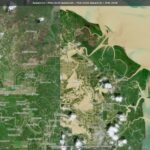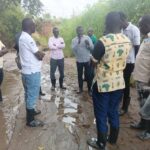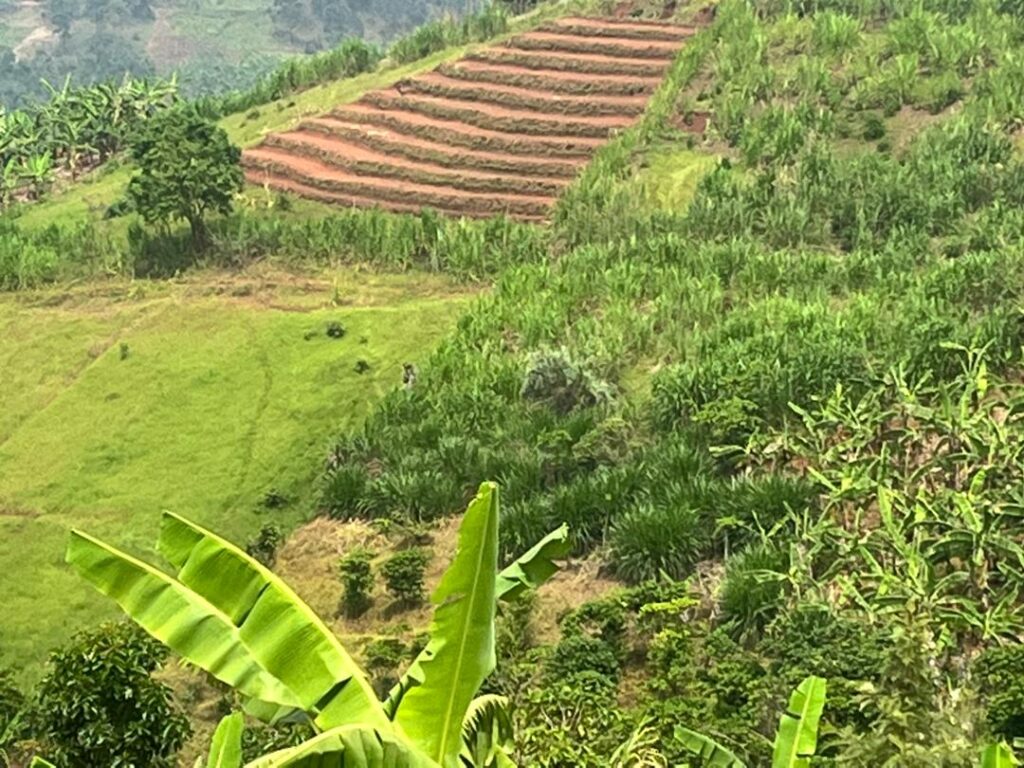Implementing Income Generating Activities for Sustainable Livelihoods in Uganda
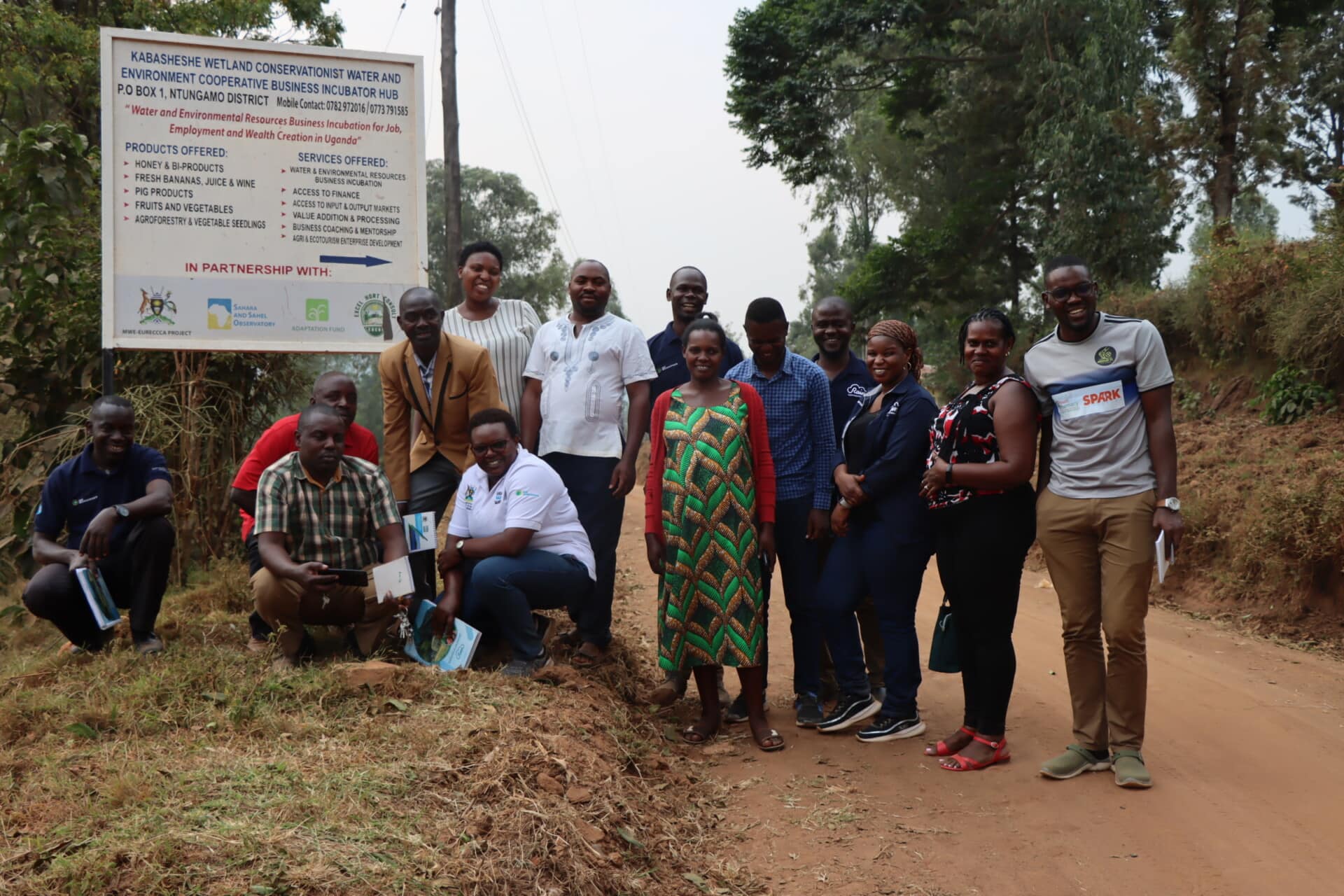
LEARNING EXCHANGE VISIT RECAP: Mbarara, Kabale, Ntungamo, and Kasese Districts in Uganda (July 31 – August 4, 2023)
Report Written by Anne Kikundwa Birungi
Background:
The Ministry of Water and Environment (MWE) is implementing the Integrated Water Management and Development Project (IWMDP) in Lwakhakha sub-catchment in Mpologoma Catchment. The IWMDP supports the implementation of catchment management measures, including soil and water conservation, riverbank protection, and providing alternative livelihoods for affected communities. This project is supported by the World Bank.
AidEnvironment organized an exchange visit to share experiences in implementing income-generating activities (IGA) for community members who were affected by activities like river bank restoration and gulley rehabilitation. The exchange visit was organized in the four districts of Mbarara, Kabale, Ntungamo and Kasese in Uganda. The Excel Hort Consult Team hosted the AidEnvironment Team in sites where different initiatives have been implemented to ensure that communities have an alternative income in line with supporting sustainable livelihood.
The exchange also visit included a visit of restored wetlands, and restored riverbanks. People in the communities had reclaimed wetlands for farming, and they were encroaching on riverbanks too. They were advised to vacate the land for purposes of environment conservation.
Objectives of the exchange visit:
1. To interact with the Excel Hort Consult team in order to understand the different community interventions in implementing IGA initiatives, and identify potential IGAs for the Lwakhakha project
2. To enable the AidEnvironment team to interact with communities and share experiences on IGAs via involvement of different stakeholders, and develop strategies for increasing stakeholder coordination and contribution in Lwakhakha sub-catchment to effectively align to the IGAs master plan.
3. To learn about value-adding opportunities within the supply chain e.g. bee keeping, energy saving technologies, fodder production, fish farming etc.
The Excel Hort Consult Team partnered with other actors to implement IWRM initiatives. They conducted sensitization and trainings to improve livelihoods. The trainings intended to enhance their understanding on how IWRM principles can be participatory, meaning these are adopted at community level with support and recognition, as well as help partners develop some ideas for enterprise selection.

Crafts Making
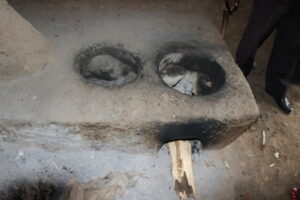
Creating energy saving stoves
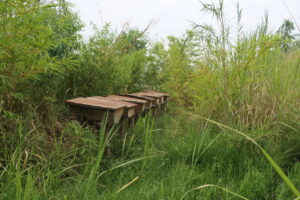
Apiary
Enterprises introduced included energy saving stove production, vegetable gardening, community tourism, stone business, goat rearing, and dairy farming.
Following this field mission, the AidEnvironment team in Uganda will embark on developing a roadmap for implementing initiatives geared toward: 1) Livelihood improvement; 2) Community forest and water conservation; 3) Innovative community tourism, 4) Capacity building and research, and 5) Local networking for income generation in Lwakhakha sub Catchment.

